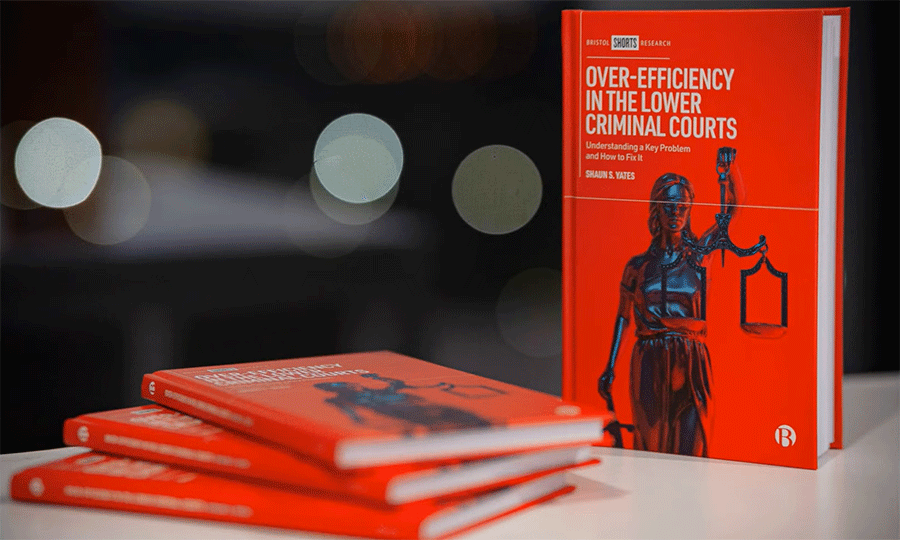Dr Shaun S. Yates' new book explores the negative impact of prioritising speed and standardisation in the magistrates' courts.
Date: 10 September 2024
Are the lower criminal courts of England and Wales (the magistrates’ courts) too efficient? Yes, at least in some areas.
This is the central argument in a new book by Dr Shaun S. Yates, Senior Lecturer in Criminology at School of Social Sciences and Professions and Crime Challenge Champion Lead at London Met Lab, London Metropolitan University. Yates spent nine months observing courtroom practices and analysing original stenographic data of real cases to produce his work, Over-Efficiency in the Lower Criminal Courts (published by Bristol University Press). According to Yates, some magistrates' court practices focus too much on speed and standardisation. The result is that these courts resemble factories delivering conveyor-belt justice. This is a far cry from what the courts should really be doing. As Yates convincingly argues, the courts should be places where delicate social issues are discussed and resolved.
Yates claims that the lower criminal court process is now characterised by the problem of being 'overly efficient'. Contemporary practices deprioritise key values such as verdict accuracy, defendant comprehension and participation, and fair sentencing in favour of speed and standardisation. His study illustrates this problem in light of recent efficiency reforms in the justice system, which include the reduced number of court buildings, greater prosecution-defence co-operation through the Criminal Procedure Rules, and the courts’ introduction of the Early Guilty Plea scheme – all of which, according to Yates, have negatively impacted the courts’ ability to uphold fundamental principles of quality justice.
Yates offers several recommendations for redressing the balance, including: providing defendants with clearly written ‘end of day receipts’ summarising each day’s proceedings, amending Criminal Procedure Rules to prevent the judges from being directly involved in plea bargaining during hearings, and providing updated training for magistrates and others on mental health and well-being issues, ensuring these are more thoroughly considered when accounting for mitigating circumstances.
Shaun commented on the book: "Over the last 30 years, the lower criminal courts have relentlessly pursued the goal of efficiency. This latest research compels policymakers to reconsider the limits of efficiency reforms: justice can be speedy and factory-like in its disposal of cases but at what cost to fairness, verdict accuracy, and sentence proportionality? This research uses high-quality evidence to demonstrate that efficiency reforms have gone too far. What we need now is to be aware of the problem of ‘over-efficiency’; indeed, there can be too much of a good thing. It’s time to refocus on what it means to deliver quality justice."

